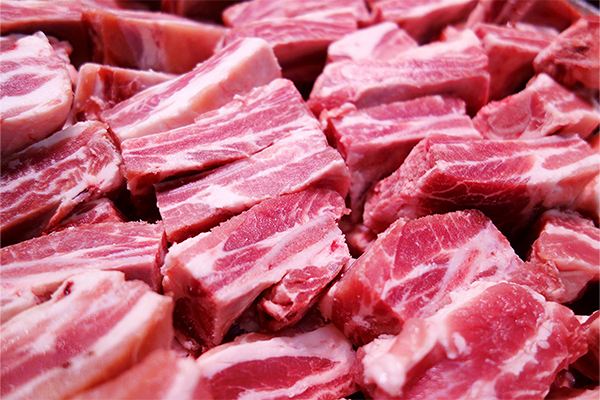According to Chilean media reports, during the 9th China "Chile Week", Chile and China signed two agreements to continue to expand the scope of Chilean agricultural products to China.
The signing ceremony was held in Beijing on December 3. Chilean Foreign Minister Van Klaveren, Deputy Minister of Agriculture Ignacia Fernandez, and Director General of the General Administration of Customs of China Yu Jianhua and Deputy Director General Wang Lingjun attended the signing ceremony.
One of the agreements is about the delivery of fresh Chilean fruits to China via third-country ports and airports, which will shorten and optimize transit time and ensure the freshness of fruits when they arrive at Chinese consumers. Another agreement is to increase the scope of products for import into China of chilled pork and some frozen pig by-products (pig offal).
"We are very happy about the implementation of the new export agreement, which will further strengthen our relationship with China. We thank the General Administration of Customs of China for its efforts to facilitate these agreements, which not only promote exports, but also reflect the trust and friendship between Chile and China, and reaffirm our commitment to providing high-quality and safe food to Chinese families." Deputy Minister Fernandez said after signing the agreement.
Before the two countries reached an agreement, Chile only had access to frozen pork for export to China. Now, chilled pork and more frozen pork by-products can be exported to China. In this regard, Juan Carlos Domínguez, president of the Chilean Meat Association (Chilecarne), who accompanied the Chilean government on its visit to China, said that pork accounts for nearly 60% of Chile's meat exports to China. He said: "Chile is the first (South American) country to be allowed to export such products to my country. This is good news because it expands market opportunities for our products, improves competitiveness, and allows us to continue to develop a production activity that contributes significantly to our rural sector."

The signing ceremony was held in Beijing on December 3. Chilean Foreign Minister Van Klaveren, Deputy Minister of Agriculture Ignacia Fernandez, and Director General of the General Administration of Customs of China Yu Jianhua and Deputy Director General Wang Lingjun attended the signing ceremony.
One of the agreements is about the delivery of fresh Chilean fruits to China via third-country ports and airports, which will shorten and optimize transit time and ensure the freshness of fruits when they arrive at Chinese consumers. Another agreement is to increase the scope of products for import into China of chilled pork and some frozen pig by-products (pig offal).
"We are very happy about the implementation of the new export agreement, which will further strengthen our relationship with China. We thank the General Administration of Customs of China for its efforts to facilitate these agreements, which not only promote exports, but also reflect the trust and friendship between Chile and China, and reaffirm our commitment to providing high-quality and safe food to Chinese families." Deputy Minister Fernandez said after signing the agreement.
Before the two countries reached an agreement, Chile only had access to frozen pork for export to China. Now, chilled pork and more frozen pork by-products can be exported to China. In this regard, Juan Carlos Domínguez, president of the Chilean Meat Association (Chilecarne), who accompanied the Chilean government on its visit to China, said that pork accounts for nearly 60% of Chile's meat exports to China. He said: "Chile is the first (South American) country to be allowed to export such products to my country. This is good news because it expands market opportunities for our products, improves competitiveness, and allows us to continue to develop a production activity that contributes significantly to our rural sector."


